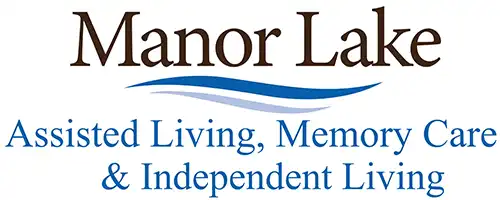
We routinely receive finance-related questions while providing professional assisted living services here in Athens and loving memory care services in Athens as well. A commonly asked question pertains to whether or not establishing joint bank accounts between seniors and their family. We want to recognize “A Place For Mom” who authored great guidance on this subject that we share with you today.
So, are you considering opening a joint bank account with an aging parent? While it may seem like a convenient way to pay the bills, a joint account has drawbacks that could be financially damaging to you both. Weigh the pros and cons here before heading to the bank.
Advantages of a joint bank account
A joint bank account is an easy way to assist your aging parent with managing day-to-day finances. Having a joint checking account can help you:
- Ensure bills are paid on time
You can easily pay your parent’s bills with automatic payments or checks from the joint account. - Monitor your mom or dad’s finances
Seniors are often targets of fraud. Regularly checking their account statements makes it easier to spot. If you’re worried your parent may be suffering cognitive decline, you can also keep track of their purchases to make sure they aren’t overspending. - Pay caregivers and aides
Regular caregiving expenses, including housekeeping and home care, can be paid from the joint account. - Pay for emergency medical care
If your elderly parent requires immediate payment for medical care, you can draw from the joint account. - Access funds after your parent dies
With a joint checking account, you have immediate access to funds without having to go through probate. This can help with funeral expenses and hospital or hospice bills.
Risks of a joint bank account with an elderly parent
Depending on your financial situation, the decision to combine accounts could be detrimental to both you and your parent. Here are some risks to consider before opening a joint account with your elderly loved one:
- Rights of ownership
“The money in that joint account is now owned equally by the parent and the child,” writes Timothy L. Takacs, a certified elder law attorney in Hendersonville, Tennessee. “This means the child can take out money at any time without the parent’s consent.” In other words, the money isn’t split 50/50. Either person can withdraw the entire account without penalty. - Financial qualification
The funds in the account can affect your ability to qualify for financial assistance. For example, sharing a bank account could put an elderly parent above the income threshold for Medicaid. It could also affect financial aid for prospective college students. - Risk of damage or debt
Joint bank accounts are subject to liens, debt collection, divorces, and bankruptcy. This can put either party in financial danger due to the other’s circumstances.- If the adult child on the bank account gets divorced, their parent’s contributions can be considered part of their assets to be split in the separation.
- If either party declares bankruptcy, the entire account is considered an asset.
- Creditors can pursue the funds if either party owes money for medical bills, child support, etc.
Accessing an elderly parent’s bank account with siblings
Money is the main reason adult siblings fight over their parent’s care, and joint bank accounts can lead to disputes. If one sibling is a primary caregiver, or helps their aging loved one pay bills, it may seem sensible for them to take over an elderly parent’s finances or to set up a joint account.
But siblings could question how and why money is being spent, says Mike Travers, a certified financial planner in Ontario, Canada. They may accuse the joint account holder of financial abuse, especially if the funds appear to be misappropriated. “Parents need to be mindful of what they may set their children up for,” says Travers.
In families with multiple children, a joint checking account with one child has consequences regarding inheritance. “In most states, upon the parent’s death, the money in the account automatically goes to the child whose name is on the account, thereby disinheriting the other children,” writes Takacs. This is because joint accounts are usually held with rights of survivorship, which means ownership passes automatically from the deceased to their survivor.
A joint account can preclude a will in the case of your loved one’s death, no matter when the account was established. This means the child on the shared account would receive all the money in the account.
The FDIC guide to joint bank accounts provides a potential solution: “While most joint accounts are held with rights of survivorship, in rare instances joint account owners are ‘tenants in common,’ which means ownership does not necessarily pass from decedent to survivor. Instead, each co-owner can bequeath his or her share of the account to whomever he or she chooses.” With this provision, the aging parent could assign their share of the account to a separate child, ensuring it’s split evenly. Consult a financial advisor to see if this provision could apply to your family.
Alternatives to a joint bank account
If the risks of a joint bank account outweigh the benefits in your family’s circumstances, consider these alternatives:
- Signature authority on accounts
The IRS suggests signature authority, which allows an adult child access to their aging parent’s bank account. They can use it to pay bills and make purchases as long as they’re in the loved one’s interest. Your local bank branch can set this up easily with both signatures. - Power of attorney
With power of attorney, an adult child can handle financial matters on their aging parent’s behalf. This means they can deposit social security checks, pay bills, or manage investments. With financial power of attorney, a child can also maintain or sell assets and access bank accounts. A durable financial power of attorney is recommended, since it remains in effect even if the parent is incapacitated. - Payable on death provision
An aging parent can add a “payable on death” provision to bank accounts, according to Legacy Assurance. This ensures their money will bypass probate and be paid directly to beneficiaries. If they have a will, it’s important to be sure the two don’t contradict each other. - Revocable living trust
Aging parents can put money for relatives into a revocable living trust (“revocable” means parents can alter the trust as long as they’re mentally competent — after that, it becomes an “irrevocable” trust), according to the American Bar Association. There are three parties involved: the creator, the co-trustee who manages assets (which could be an adult child), and the beneficiaries. This is only a viable option if the elderly parent has sufficient finances to set up a trust. - Direct deposit
An adult child can open a checking account in their own name to manage their parent’s funds. Even though it won’t accrue interest, the balance can be altered with regular deposits. For instance, if a child generally spends $1,000 a month on their parent’s care, the parent’s individual savings account or trust could automatically deposit that amount on a monthly basis.
How to find an expert to help with senior finances
Every family’s financial situation is different. Consider consulting a certified financial advisor to understand how to best help your elderly parents. Visit the Certified Financial Planner Board of Standards to search for one by city, state, or ZIP code. Certified elder law attorneys are often also experts in financial issues related to aging. Visit the National Academy of Elder Law Attorneys to find one in your area.
Before selecting an advisor, ask about their experience with elderly finances. Registered financial gerontologists have extra training in providing financial advice to aging adults and their families. In addition, some geriatric care managers offer financial advising or can link you with an advisor who specializes in elder-care finance.
Please know that our professional expertise is in providing assisted living and memory care services. We are not financial advisors, however, we view this as prudent guidance that helps your formulate questions and concerns that you can direct to a qualified financial consultant. As always, we stand ready to answer any and all questions you might have regarding the benefits of professional care services. Call anytime!

